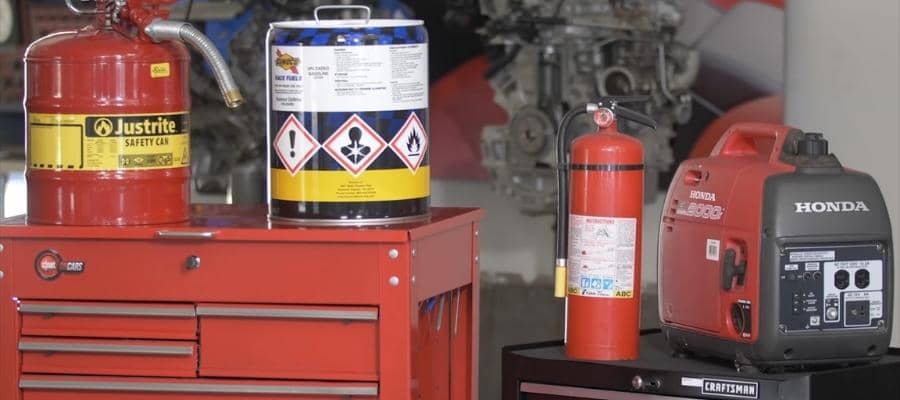
If you want to buy a generator, you should first learn about the fuels that are used in generators. There are four types of fuel available on the market: propane, gasoline, natural gas, and diesel. Consider cost, efficiency, and availability when choosing the best generator fuel. After you’ve decided on the fuel for your generator, the next step is to select the generator.
These are the four most common types of fuel for your generator. The various types are natural gas, gasoline, diesel, and propane. When used in generators, they all have advantages and disadvantages. As a result, you will be able to learn about all four types of generator fuel sources and determine which is best for your requirements. Knowing the advantages and disadvantages of various fuels will assist you in selecting a better backup generator for your home.
Diesel
The most prevalent type of fuel on the market is diesel, which you have almost certainly used in your vehicle. However, if your home need a lot of electricity, diesel generators are the way to go. It is best for commercial use because it is more suitable for appliances with high kW. They are also utilized in hospitals and contact centers to ensure a continuous power supply with no disruptions during crises. There are numerous advantages to using diesel generators over other fuel types. Some of them are as follows:
Pros
- It is less expensive to use.
- Efficient.
- Ideal for long-term use.
- Dependable for commercial applications, including onsite fuel delivery.
- Less flammable than other fuels.
- It is suitable for usage in subarctic environments.
- Long life expectancy if properly maintained and serviced on a regular basis.
- Long-term operation is less expensive than that of gasoline-powered generators.
Cons
- However, if you use diesel fuel in your generators, you are aware that it has an 18-month shelf life.
- It also makes more noise than other types of fuel. As a result, they are not ideal if you desire a more peaceful environment at home or at work.
- They require more attention and upkeep.
- They should not be used in freezing temperatures.
Gasoline
Gasoline is the next fuel that you can use. It is widely available on the market. They are suggested for homes with generators with less than 150kW of power. They are the most common fuel for all sorts of domestic generators, but they pose a significant safety concern when stored or used in the generator.
Pros
- First and foremost, it is widely available.
- Simple fueling procedure.
- It is ideal for portable and small standby generators.
Cons
- They have a 12-month lifespan.
- It cannot be stored in big quantities since it encourages fire and is hence highly flammable.
- They are not fuel-efficient.
- Due to increased demand during times of emergency, it can be costly.
- Unsuitable for usage at cold temperatures.
Natural Gas
Natural gas is a common fuel for generators or power stations used to light up the town or for companies. Instead of fueling it on-site, natural gas is distributed to the local electricity grid. In the event of a power outage, these generators supply power to the town’s houses that are connected to the grid.
Pros
- No more checking in for refilling because it is no longer necessary
- It does not make any noise.
- Convenient gasoline supply.
- A fuel that burns cleanly.
- Typically used during a power outage.
- Natural gas generators have a longer lifespan than other fuel alternatives.
- Environment friendly.
- Less expensive, putting less strain on your budget.
- Prices for apartments are lower.
Cons
- Power output is subpar when compared to other fuel options.
- More gallons of natural gas would be required. It has a high consumption rate and costs about three times as much as diesel.
- They are not easily accessible in remote areas.
- A high consumption rate indicates more money spent on generator fuel.
- Natural disasters can disrupt natural gas supply chains, causing power outages that last for days.
- Have safety concerns in the event that lines are broken.
Propane
Propane is not found in typical home generators because it is primarily used in big industrial and commercial settings. Furthermore, propane is difficult to handle and care for, which might lead to complications when used on a daily basis.
Pros
- Extended shelf life.
- Burns cleanly, leaving no residue.
- Can be kept nearby or on-site to replenish generators.
- In the event of a power outage, you can obtain supplies.
- Produces less noise.
- Units are less expensive.
- Large-volume propane delivery to your home.
Cons
- A higher consumption rate entails a greater strain on the expense of refueling.
- Complicated fuel system that is difficult to install.
- Installation and maintenance costs are higher than for alternative fuel generators.
- Less likely to last as long as a Diesel engine.
- Issues of safety when lines fail.
What kind of fuel works best for a generator?
Because diesel is a liquid fuel that does not evaporate as quickly when stored, it is the finest fuel for your generator. Diesel generators are also more efficient since they input fuel and air separately into the engine, which simply compresses air. As a result, at 138700 BTUs per gallon, it is the most fuel-efficient option.
Summary
Each fuel option has advantages and disadvantages, as shown above. As a result, before purchasing a generator, think about how you intend to use it. For your home, for example, you might prefer less powerful generators with a longer lifespan. If you need it for your business or factory, large-scale energy production generators, such as diesel generators, are the way to go.
Read Next:
